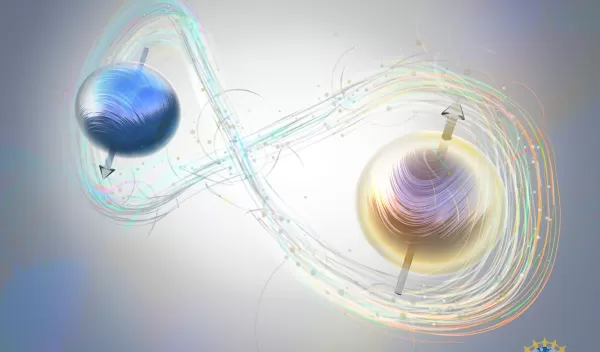
NSF congratulates laureates of the 2022 Nobel Prize in physics
The U.S. National Science Foundation congratulates Alain Aspect, John F. Clauser and Anton Zeilinger on their 2022 Nobel Prize in physics. The groundbreaking work of all three researchers has revealed the strange nature of quantum entanglement and paved the way to a new field of research: quantum information science.
NSF is proud to have supported Zeilinger's experiments demonstrating quantum entanglement as well as Aspect's collaboration with researchers in the U.S. at the National Institute of Standards and Technology and Harvard University.
Albert Einstein famously referred to the phenomenon of quantum entanglement as "spooky action at a distance." He was describing a counterintuitive property of certain pairs of tiny particles of matter or light which, when created under specific conditions in a laboratory, will react in tandem even if they are too far apart to affect each other. For example, if the polarization of a single photon in an entangled pair is changed, the other photon's polarization will also change instantaneously — even though the two photons may be separated by a large distance.
Over several decades, all three researchers conducted experiments observing such "communication" between entangled particles in different scenarios. Their fundamental discoveries provided a new understanding of nature at the quantum scale and a foundation for new technologies such as quantum computers, secure communications and networks that transmit information through entanglement.
"These remarkable discoveries have helped us understand some of the most fascinating and paradoxical properties of nature," says NSF Director Sethuraman Panchanathan. "The new quantum information technologies enabled by these breakthroughs have enormous potential, like new ways to communicate, solving previously unsolvable computational problems and more."
Select journal publications
- Experimental Test of Local Hidden-Variable Theories (1972)
- Experimental quantum teleportation (1997)
- Observation of Three-Photon Greenberger-Horne-Zeilinger Entanglement (1999)
- Cosmic Bell Test: Measurement Settings from Milky Way Stars (2017)


